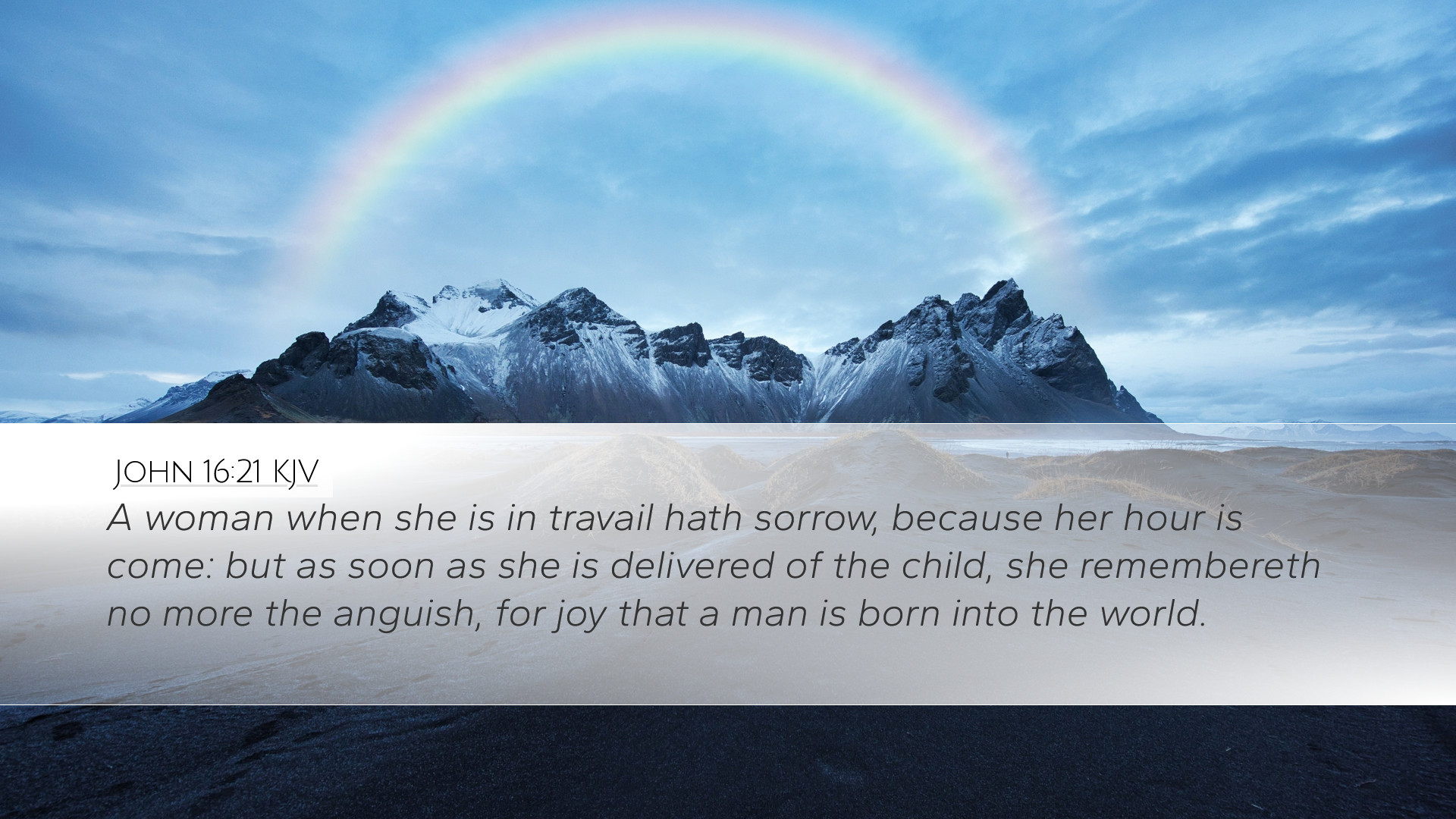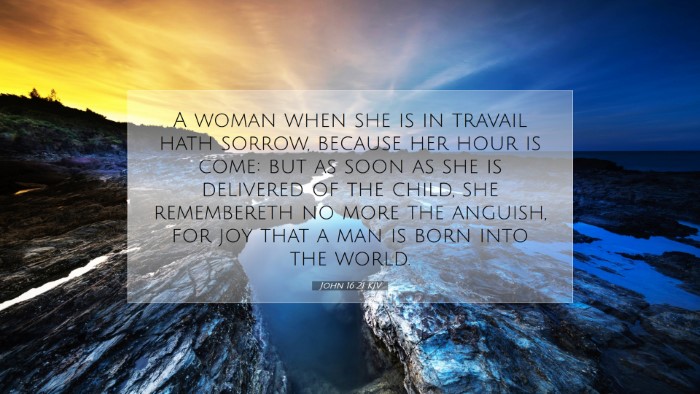Commentary on John 16:21
Verse Text: "A woman, when she is in travail, hath sorrow because her hour is come: but as soon as she is delivered of the child, she remembereth no more the anguish, for joy that a man is born into the world."
Introduction
This verse from the Gospel of John encapsulates profound theological insights into the theme of sorrow and joy that accompanies the cycle of life and the fulfillment of divine promises. The analogy of childbirth serves as a powerful tool in Jesus’ teaching to His disciples, illustrating the forthcoming transition from grief to joy. This commentary integrates insights from notable public domain theologians to provide a comprehensive understanding of the text.
The Context of John 16
In the broader context of John 16, Jesus speaks to His disciples about His impending departure, the coming of the Holy Spirit, and the challenges they will face. His discourse is laden with emotional gravity, as He prepares them for the experience of sorrow that will soon transform into joy. Understanding this backdrop is crucial for grasping the significance of His analogy of childbirth.
Verse Analysis
Metaphor of Childbirth: The metaphor of a woman in labor is a common motif in biblical literature, representing pain followed by great rejoicing. Adam Clarke points out that Jesus’ choice of this metaphor reflects not only the intensity of the upcoming sorrow but also the ultimate triumph of joy that follows. Just as a mother endures labor pains to bring forth new life, so too, the disciples will endure sorrow for a time, but the result will be an overwhelming joy.
Joy in Fulfillment: Matthew Henry elaborates on the transformative nature of joy that follows sorrow. He notes that the joy of a mother upon the birth of her child overshadows the memory of pain, signifying that the joy arising from the resurrection and the eventual fulfillment of God’s promises will eclipse the anguish experienced during trials. This speaks to a profound truth about the nature of Christian hope and glorification through suffering.
Theological Implications
The Nature of Suffering: Albert Barnes reflects on the nature of suffering and the purpose behind it within God's plan. He suggests that sorrow is often intertwined with spiritual growth, leading to a deeper understanding of joy. The temporary nature of sorrow, hinted at in Jesus’ teaching, reassures believers of the hope that lies in Christ’s resurrection and the promised Holy Spirit, which results in eternal joy.
Hope and Assurance: The transition from sorrow to joy serves as an assurance to Christians navigating the challenges of life. As Clarke emphasizes, believers are encouraged to view their temporary struggles in light of the eternal joy promised through Christ. The text reaffirms God's covenant faithfulness, suggesting that even in darkness, God is working towards a glorious fulfillment and restoration.
Practical Applications
- Encouragement in Trials: Pastors and theologians are encouraged to draw upon this verse when counseling those experiencing suffering, reminding them that even the greatest pain can lead to profound joy in Christ.
- Understanding Divine Timing: This passage illustrates the importance of understanding divine timing. Students and scholars are challenged to reflect on how God's timing in our lives is perfect, often bringing future joy from present sorrow.
- Fostering Greater Faith: Reviewing this passage equips believers to foster greater faith in God's promises, as they realize that their current suffering has a purpose that may be revealed in time.
Conclusion
In John 16:21, Jesus employs the metaphor of childbirth to articulate the profound interplay between sorrow and joy in the believer's journey. Commentators such as Matthew Henry, Albert Barnes, and Adam Clarke provide valuable insights that enrich our understanding of this text. As we reflect on the implications of this verse, may we find encouragement in our trials and a deeper understanding of the joy that awaits us through Christ, our ultimate hope and fulfillment.


